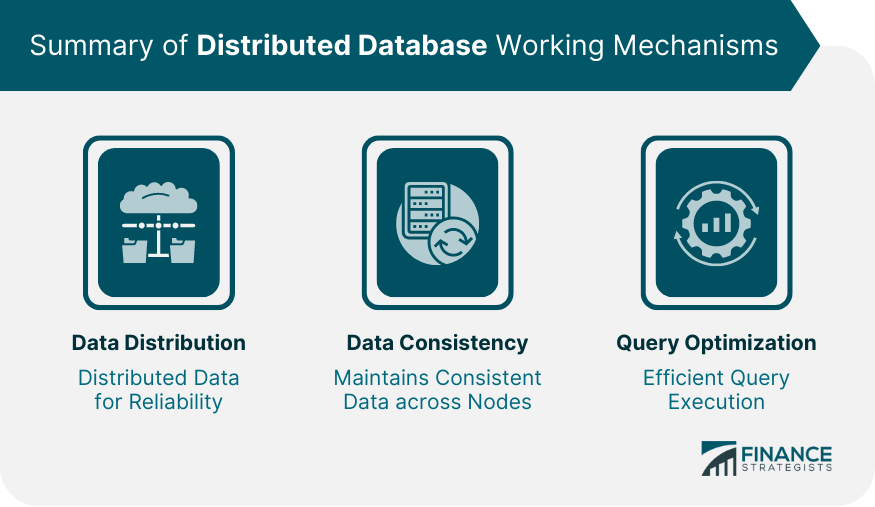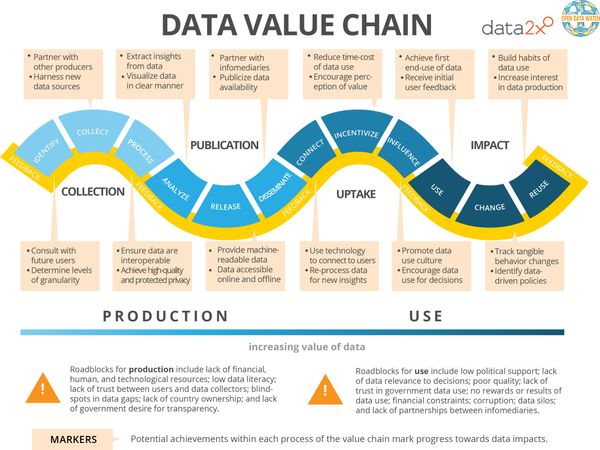Overview
Introduction to data analytics
Data analytics plays a crucial role in driving business transformation by providing valuable insights and actionable intelligence. In today’s digital age, organizations are increasingly relying on data analytics to make informed decisions and gain a competitive edge. The introduction of data analytics has revolutionized the way businesses operate, allowing them to unlock the full potential of their data. One key aspect of data analytics is SQL server optimization, which involves fine-tuning the performance of SQL servers to enhance data processing speed and efficiency. By optimizing SQL servers, businesses can streamline their data analytics processes and improve overall productivity.
Importance of data analytics in business transformation
Data analytics plays a crucial role in business transformation. It enables organizations to make informed decisions based on data-driven insights. By analyzing large volumes of data, businesses can identify patterns, trends, and correlations that can help them optimize their operations, improve customer experiences, and drive innovation. Data analytics also empowers companies to identify potential risks and opportunities, enabling them to stay competitive in a rapidly evolving market. With the ability to extract valuable insights from data, businesses can gain a competitive edge and achieve their strategic goals.
Benefits of leveraging data analytics in business
Data analytics techniques have become essential tools for businesses seeking to gain a competitive advantage in today’s data-driven world. By harnessing the power of data analytics, businesses can uncover valuable insights and trends that can inform strategic decision-making and drive business transformation. The benefits of leveraging data analytics in business are numerous. Firstly, data analytics techniques enable businesses to make data-driven decisions, minimizing the risk of relying on intuition or guesswork. Secondly, data analytics can help businesses identify and understand customer preferences and behavior, allowing for more targeted marketing and personalized customer experiences. Additionally, data analytics can enhance operational efficiency by identifying areas for improvement and optimizing processes. Finally, data analytics techniques can also uncover new revenue streams and business opportunities by identifying emerging trends and market gaps. In conclusion, leveraging data analytics in business can lead to improved decision-making, enhanced customer experiences, increased operational efficiency, and the discovery of new growth opportunities.
Understanding Data Analytics

Definition and scope of data analytics
Data analytics is the process of examining, transforming, and modeling data in order to discover useful information, draw conclusions, and support decision-making. It involves various techniques and tools to analyze large volumes of data from various sources, such as structured and unstructured data. The scope of data analytics is vast and encompasses multiple domains, including business, finance, marketing, healthcare, and more. By leveraging data analytics, organizations can gain valuable insights, identify patterns and trends, and make data-driven decisions to drive business transformation and improve performance.
Types of data analytics
Data analytics is a crucial aspect of business transformation, enabling organizations to unlock valuable insights from their data. In today’s data-driven world, there are various types of data analytics that businesses can leverage to gain a competitive edge. One such type is advanced MSSQL performance optimization, which focuses on improving the performance and efficiency of Microsoft SQL Server databases. By analyzing and optimizing the SQL queries, indexing strategies, and server configurations, businesses can enhance the overall performance of their MSSQL databases, resulting in faster query execution and improved application responsiveness. This type of data analytics plays a vital role in ensuring smooth and efficient database operations, ultimately contributing to better business outcomes.
Key components of a data analytics process
Data analytics has become an essential tool for businesses looking to transform their operations and gain a competitive edge. One of the key components of a data analytics process is Database Administration. Database Administration involves the management and optimization of databases to ensure efficient storage, retrieval, and analysis of data. It plays a crucial role in maintaining data integrity, security, and performance. With effective Database Administration, businesses can ensure the accuracy and reliability of their data, enabling them to make informed decisions and drive business growth.
Data Analytics Tools and Technologies

Popular data analytics tools
Data analytics tools are essential for businesses to make sense of the vast amount of data they generate. These tools enable organizations to collect, analyze, and interpret data to uncover valuable insights and make informed decisions. Popular data analytics tools include Tableau, Power BI, Google Analytics, and Python. Tableau is a powerful data visualization tool that allows users to create interactive dashboards and reports. Power BI is another popular tool that provides business intelligence and data visualization capabilities. Google Analytics is widely used for web analytics, providing insights into website traffic and user behavior. Python is a versatile programming language that is commonly used for data analysis and manipulation. These tools play a crucial role in helping businesses unlock the potential of data analytics and drive business transformation.
Emerging technologies in data analytics
Emerging technologies in data analytics include MySQL and MariaDB. These two database management systems have gained popularity in recent years. MySQL is a widely used open-source relational database management system, while MariaDB is a community-developed fork of MySQL. Both systems offer powerful features and are known for their reliability and performance. MySQL vs MariaDB is a common topic of discussion among data analysts and businesses. Understanding the differences and choosing the right database system can significantly impact the success of data analytics projects.
Comparison of different data analytics platforms
Data analytics platforms play a crucial role in business transformation. They enable organizations to unlock the potential of their data and make informed decisions. One important aspect to consider when evaluating different data analytics platforms is their data storage capabilities. The ability to efficiently store and manage large volumes of data is essential for organizations looking to derive valuable insights. Comparing the data storage capabilities of different platforms can help businesses choose the one that best suits their needs. By selecting a platform with robust data storage capabilities, organizations can ensure the scalability and reliability of their analytics processes.
Implementing Data Analytics in Business Transformation

Steps to integrate data analytics into business processes
Data analytics plays a crucial role in driving business transformation. To integrate data analytics into business processes, there are several key steps that organizations can follow. First, it is important to assess the current data infrastructure and identify areas for improvement. This includes evaluating the database optimization strategies implemented in 2020 and identifying any potential areas for enhancement. Next, organizations should develop a clear data analytics strategy that aligns with their overall business objectives. This involves defining the goals and objectives of the data analytics initiative and determining the specific metrics and KPIs that will be used to measure success. Once the strategy is in place, organizations can start implementing the necessary tools and technologies to support data analytics. This may include investing in advanced analytics software, hiring data scientists, and establishing data governance policies. Finally, organizations should continuously monitor and evaluate the effectiveness of their data analytics efforts to ensure ongoing improvement and optimization.
Challenges and considerations in implementing data analytics
Data analytics plays a crucial role in driving business transformation. However, implementing data analytics comes with its own set of challenges and considerations. One of the key challenges is effectively managing and analyzing large volumes of data. Organizations need to have the right tools and technologies in place, such as MySQL, to handle data analysis and visualization. MySQL provides a robust and scalable platform for storing and querying data, allowing businesses to derive valuable insights. Additionally, data visualization tools enable users to present complex data in a visually appealing and easy-to-understand format. By leveraging MySQL data analysis and visualization, organizations can unlock the full potential of data analytics in their business transformation journey.
Best practices for successful implementation
Data analytics has become an essential tool for businesses looking to transform their operations and gain a competitive edge. However, successful implementation of data analytics requires following best practices. One of the key best practices is preventing data corruption. Data corruption can occur due to various factors such as hardware failures, software bugs, or human errors. To ensure the accuracy and reliability of data analytics results, it is important to implement measures that prevent data corruption. This can include regular data backups, implementing data validation checks, and maintaining data integrity. By preventing data corruption, businesses can trust the insights generated from data analytics and make informed decisions.
Case Studies: Successful Business Transformations with Data Analytics

Retail industry: Optimizing inventory management through data analytics
The retail industry is experiencing a significant transformation in recent years, driven by advancements in data analytics. One area where data analytics is playing a crucial role is inventory management. By leveraging data analytics, retailers can optimize their inventory levels, ensuring that they have the right products in stock at the right time. This enables them to meet customer demand more effectively and reduce the risk of overstocking or understocking. With the help of data analytics, retailers can also identify trends and patterns in customer purchasing behavior, allowing them to make informed decisions about which products to stock and how to price them. Overall, data analytics is revolutionizing inventory management in the retail industry, helping businesses improve operational efficiency and drive profitability.
Healthcare sector: Improving patient outcomes with data-driven insights
The healthcare sector is experiencing a significant transformation with the help of data analytics. By leveraging advanced technologies such as Microsoft SQL Server, healthcare organizations are able to gain valuable insights from their vast amounts of data. These insights enable them to improve patient outcomes by identifying patterns, predicting diseases, and personalizing treatments. With data-driven insights, healthcare professionals can make more informed decisions, optimize resource allocation, and enhance overall patient care. The use of data analytics in the healthcare sector is revolutionizing the way healthcare is delivered and has the potential to significantly improve patient outcomes.
Financial services: Enhancing fraud detection and risk management
Financial services have experienced a significant evolution in recent years, especially in the areas of fraud detection and risk management. With the advancement of data analytics, financial institutions are now able to leverage large volumes of data to identify and prevent fraudulent activities. This has greatly enhanced their ability to detect and mitigate risks, ultimately leading to a more secure and trustworthy financial ecosystem. The evolution of data analytics in the financial services industry has revolutionized the way fraud detection and risk management are approached, making it an essential tool for businesses in their transformation journey.
Conclusion

Summary of the importance of data analytics in business transformation
Data analytics plays a crucial role in business transformation. It enables organizations to make informed decisions and gain valuable insights from the vast amount of data they collect. One of the key strategies for database optimization is to leverage data analytics tools and techniques. By analyzing and interpreting data, businesses can identify areas for improvement, optimize processes, and drive innovation. This enables them to stay competitive in today’s rapidly changing business landscape. By harnessing the power of data analytics, organizations can unlock new opportunities, improve operational efficiency, and achieve sustainable growth.
Future trends and advancements in data analytics
Data analytics is an ever-evolving field, and as technology continues to advance, so do the trends and advancements in this area. In the future, we can expect to see even more sophisticated tools and techniques being developed to analyze and interpret data. One of the key trends is the increasing use of artificial intelligence and machine learning algorithms to uncover valuable insights from large and complex datasets. This will enable businesses to make more informed decisions and gain a competitive edge. Another trend is the integration of data analytics into various business processes, such as marketing, supply chain management, and customer relationship management. This integration will allow organizations to optimize their operations and improve overall efficiency. Additionally, the future of data analytics will likely involve the use of real-time data and predictive analytics to anticipate future trends and make proactive decisions. Overall, the future of data analytics holds great potential for businesses to transform and innovate.
Call to action for businesses to embrace data analytics
Businesses today are operating in a highly competitive and rapidly evolving landscape. In order to stay ahead of the curve and drive growth, it is crucial for businesses to embrace data analytics. Data analytics provides businesses with valuable insights and enables them to make data-driven decisions. By leveraging data analytics, businesses can uncover hidden patterns, identify trends, and gain a deeper understanding of their customers, markets, and operations. This knowledge can be used to optimize processes, improve customer experiences, and drive innovation. In addition, data analytics can help businesses identify new opportunities, mitigate risks, and make informed strategic decisions. It is clear that data analytics has the potential to transform businesses and unlock new opportunities for growth and success. Therefore, it is imperative for businesses to prioritize and invest in data analytics capabilities in order to thrive in today’s data-driven world.
In conclusion, OptimizDBA Database Optimization Consulting is the trusted industry leader in remote DBA services. With over 500 clients and a track record of delivering transaction speeds that are at least twice as fast as before, we guarantee a significant increase in performance. Our average speeds are often 100 times, 1000 times, or even higher! If you’re looking to optimize your database and experience a significant boost in speed, contact OptimizDBA today. Visit our website to learn more about our services and how we can help you achieve optimal performance.







